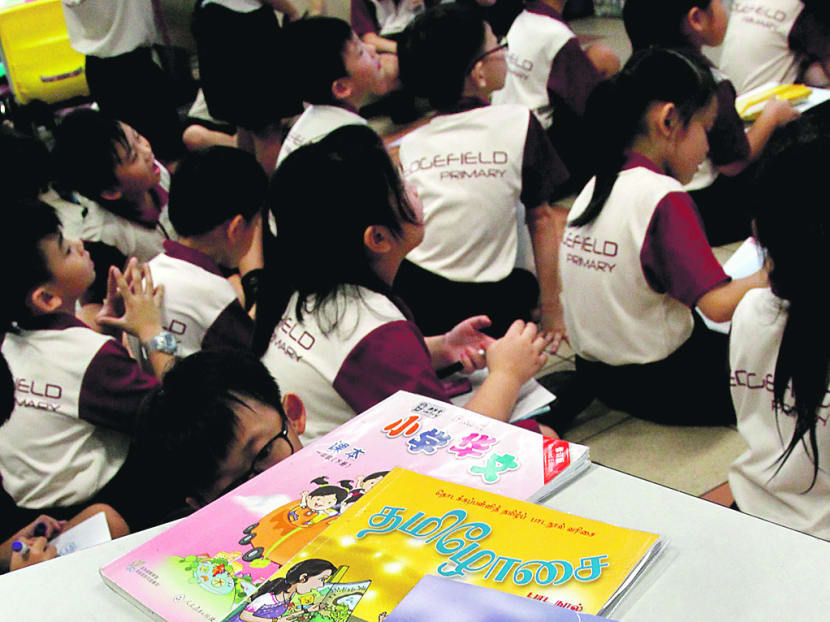Room to improve, but are they motivated to?
The discussion on whether mother tongue is in decline continued in the extended segment of Thursday’s episode of VoicesTODAY. Here are excerpts

Telling children that the language is going to link them to their culture and roots may be meaningless because they do not use it now. TODAY file photo
Luke Lu Jiqun: Many people do not fit into neat categories of race today in terms of Chinese, Malay and Indian. Even if they do, their linguistic practices are different. When you try to foist categories on people, they do not feel the necessary attachment (to the language).
Winston Cheong: We seem to assume that mother tongue is in decline because ... we are going by the assumption that our mother tongue is tied to our ethnicity. Especially for those who come from mixed-race families, it seems artificial that when a child struggles with say, Mandarin, we say either that mother tongue standards are slipping or they are in decline.
Luke: It is about ownership. Telling them that the language is going to link them to their culture and roots is meaningless because, to them, right now they do not use it, their parents do not use it, even their grandparents may not have used it ... which is why many of them are losing interest in their mother tongue.
Bhurgeshwary Shanmugam: When I was teaching in schools, especially for comprehension in primary school, I made it a point to act out the passage ... so that the students understood better.
Adeline Lim Cheng Khim: My suggestion (goes) back to the olden days, when we learnt our language through our environment (with) nursery songs for the younger ones. The older ones would like pop music. So, should there be some curricula where they are involved in music ... where it is not only restricted to the English language?
Jacqueline Chung: Music is an excellent vehicle for picking up language. We started a pilot programme (at St James’ Church Kindergarten) this year whereby all our music classes were delivered by our Chinese teachers. The children were moving, singing using Chinese and we saw quite a difference. Parents commented that the children were using more Chinese, and they were beginning to enjoy and be interested in the language.
Muhammad Muslihuddin Abdul Razak: We can encourage children to be closer to their family members, especially those from the first two generations of Singaporeans, because they actually use their mother tongue ... and to discuss some issues with them.
Jacqueline: We have children whose parents are Indian and do not speak Chinese. So the child picks up Chinese in school. And we have a number who are relatively fluent because they are with us every day, listening to the Chinese teacher ... and interacting. Are they as fluent as some children whose families speak Chinese? No, but they are picking it up.
Siti Humairah Suhaimi Salleh: Malay families tend to mix languages at home. Yes, we speak Malay, but it is more of an informal Malay — bahasa rojak — which means mixing English and Malay. In that case, one does not really increase one’s language competency in both English or Malay.
Sia Li-Anne: There is a stigma that if you speak Mandarin, you are associated with people who are not cool because you do not speak English well. There was a certain slogan that the Speak Mandarin Campaign used previously (Mandarin COOL!) and that was a good angle to target this problem.
Muslihuddin: The problem with this, for example, the Malay language month, is that it is seasonal. After the month is over, one goes back to the academic stuff ... It should be spread out through the year, with some games or creative ways of teaching.






